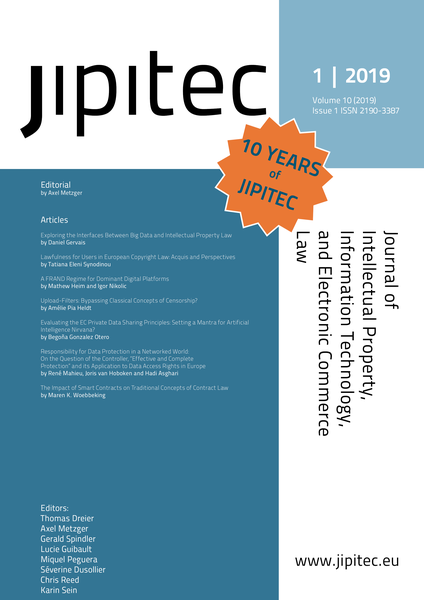The Impact of Smart Contracts on Traditional Concepts of Contract Law
Keywords:
Smart Contracts, code is law, contractual ambiguity, formalization of contracts, modifying smart contracts, regulation of cyberspace, self-execution of contractsAbstract
The concept of smart contracts entered the legal discourse only a few years ago, yet the subject has already given rise to remarkably different approaches. While some assume that smart contracts can be fully integrated into existing contract law, others predict that they will mark the beginning of the end of contract law. The aim of this article is to contribute to the assessment of smart contracts by examining how they can be situated within the traditional Western concept of contract law and how they differ from traditional contracts in the individual phases of a contract’s life cycle. In particular, these findings show that the automated execution of the promises contained in a smart contract, specifically their technical characteristics, lead to an increased significance of the contract drafting phase compared to the execution phase. Among other aspects, smart contracts are considerably more difficult to modify than traditional contracts and they are limited by the fact that the encoding of contracts requires an increased formalization of the contractual terms. On the other hand, the technical architecture of smart contracts offers possibilities ranging from automatic self-help to the enforcement of legally unenforceable agreements. It is precisely this autonomy of smart contracts from existing contract law that finally raises the question of whether an adaptation of contract law will become necessary and what difficulties such an adaptation would face.Published
2019-06-05
Issue
Section
Editorial

